Issues with movement or coordination? Put off cooking because you know you'll make a mess? My cooking tips for clumsy people come from years of experience as a neurodivergent person and kitchen catastrophe. Cooking both casually and professionally has given me an arsenal of knowledge on how to cook alongside motor skill issues and disorganisation without losing one's love for cooking.

1. Don't Rush or Overstretch Yourself
Stress and clumsiness go hand in hand. The more stressed you are, the more disorganised you'll be and the two states will only feed off each other.
So be honest with yourself about how much time you have, and how much time you'll need to make a given recipe. This is especially important for those of us with time management issues. And more importantly...
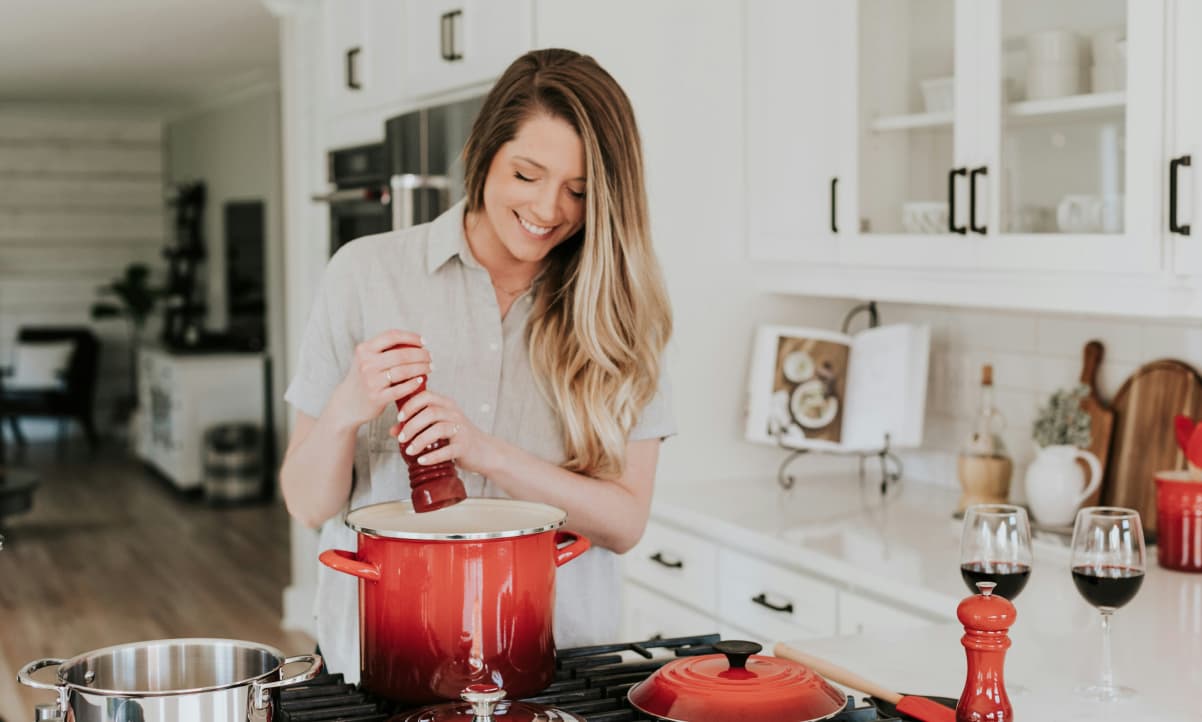
Don't treat your home kitchen like a professional kitchen. It doesn't have to be spotless, and you don't have to take on complex recipes for the sake of it. You'll only sap the fun out of the experience!
Some have the energy, bandwidth and time to cook something special every day - or at least that's what their socal media posts would have you believe. But most people dont, and that's okay.
If you're determined to cook but you're busy, go for something really simple that's easy to jazz up. Elevate store-bought pesto with the right garnish, or get the most out of that jarred curry sauce that's been at the back of the cupboard for weeks.
Save the big flashy meals or things that require careful monitoring for the weekend. Your kitchen and your mental health will thank you.
2. Light, Shatter-proof Materials are Your Friend
If you're a serial plate breaker like me, it's time to rethink the materials your kitchen tools and crockery are made from.
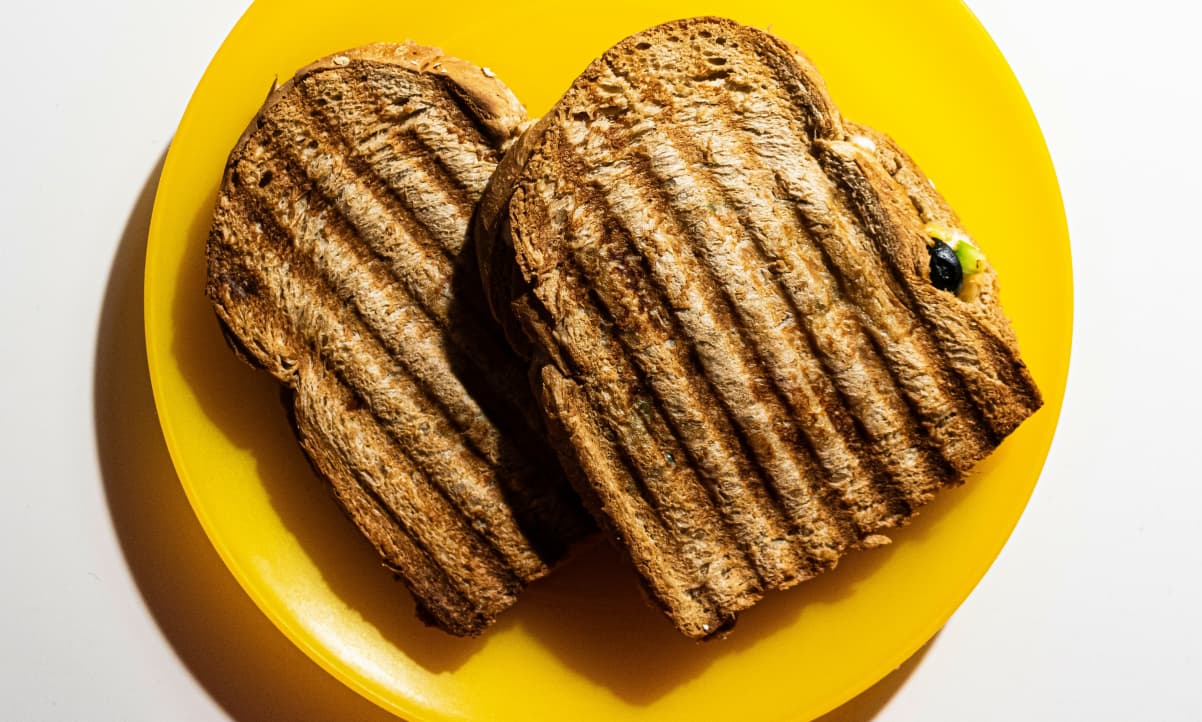
Metal, ceramic, glass and porcelain may look nice, but can be noisy when they fall to the ground and/or are easily broken. This can be stressful, especially if you have sensory processing issues or are short on funds to buy replacements.
Some things, like coffee mugs, your cafetiere of choice, just have to be made of breakable materials. So do yourself a favour - both financially and emotionally - and make sure it's both cheap and easy to replace if it breaks.
Some expensive items, like large ceramic casserole dishes, come with guarantees and warranties. If I want to spend a significant amount of money on something I know I might break, I make sure it comes with this kind of safety net.
Many kitchen items are only made with hard materials, and for good reason - pans and baking trays for instance - but softer, less noisy alternatives are available for almost everything else.
![]()
Silicone
Silicone is probably my favourite clumsy chef hack. Not only is it considered safer than plastic from a chemical health standpoint, but it's pretty too! And you can swap out many of your tools and utensils for silicone alternatives easily.
Everything from your soup ladel to your muffin tray can actually be made and safely used out of silicone. In particular, I love my silicone spoon rest and silicone ice cube tray (pictured above).
This material is just an all round winner for me. It's easy to clean, soft to touch, and won't make a racket when you drop it! What's not to love?
Silicone oven gloves have great grip. So try them out if you have difficulty getting things in and out of the oven without dropping them!
Unbreakable Crockery
Perhaps the most important thing I want to convey in my cooking tips for clumsy people is that there's no shame in substituting "regular" kitchenware for alternatives which are safer for you.
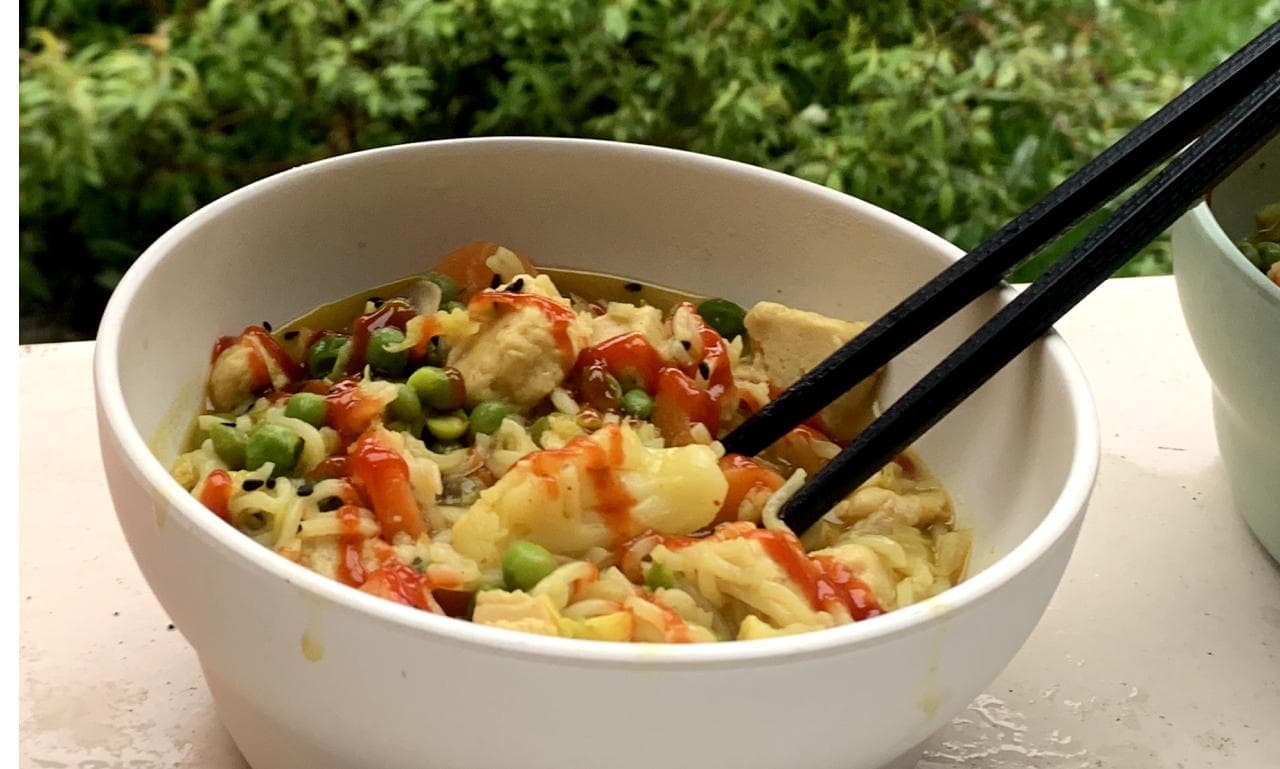
This was a tough transition for me at first. Sometimes it felt like I was drinking from kiddie cups and eating from kiddie plates. But a plastic tumbler in a fun colour is better than cleaning up glass from the kitchen floor again and again, and wasting money in the process, any day.
In fact, the blue and green bowls I photograph Dinner With Evie dishes in are made of plastic! Not that you'd be able to tell as they're surprisingly elegant.
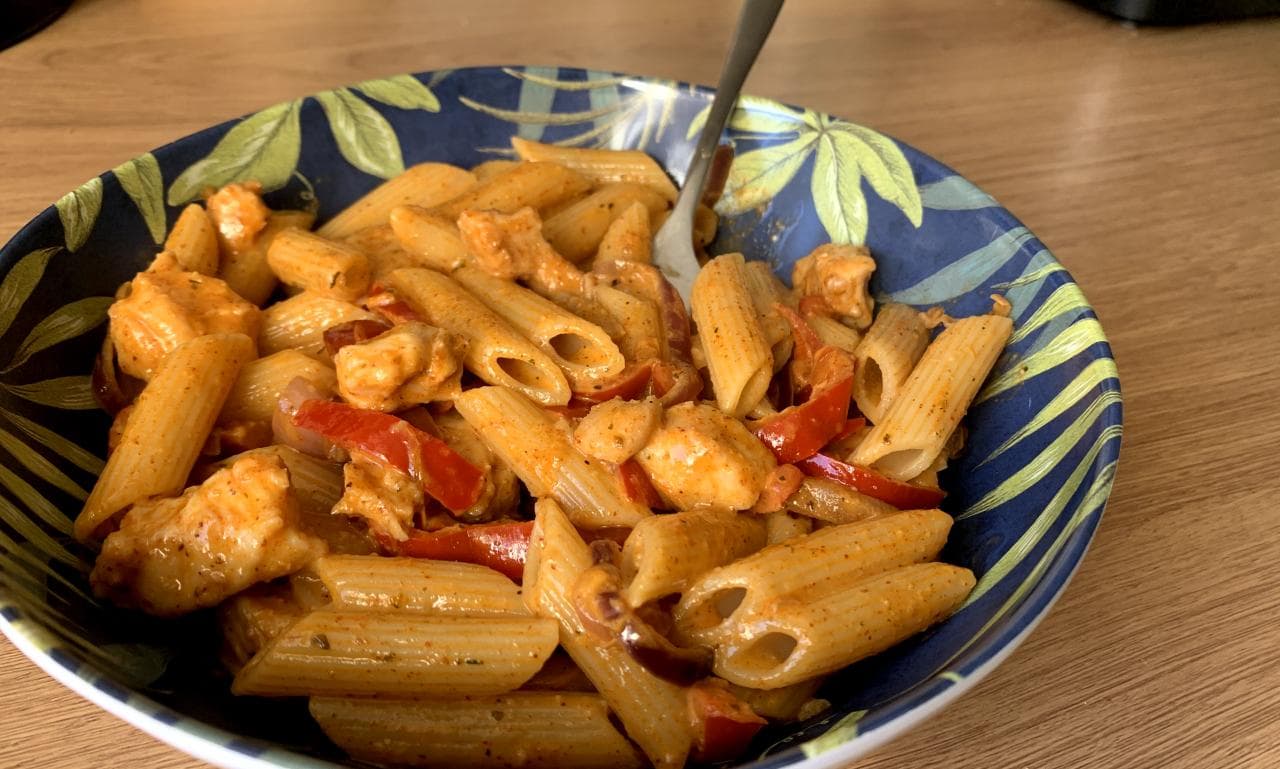
I've come to love unbreakable crockery, and it's largely the only crockery me and my family eat from. (Which is actually great with a throw-happy toddler around!).
Many brands that make unbreakable crockery use organic materials like bamboo fibre, which is great if you're wanting to limit plastic use in your home.
3. Keep Cleaning Products To a Minimum
If you spill something on the counter, don't go rushing for fancy products and cloths. A bowl of warm water, dish soap and a dish sponge or blue cloth are perfectly fine.
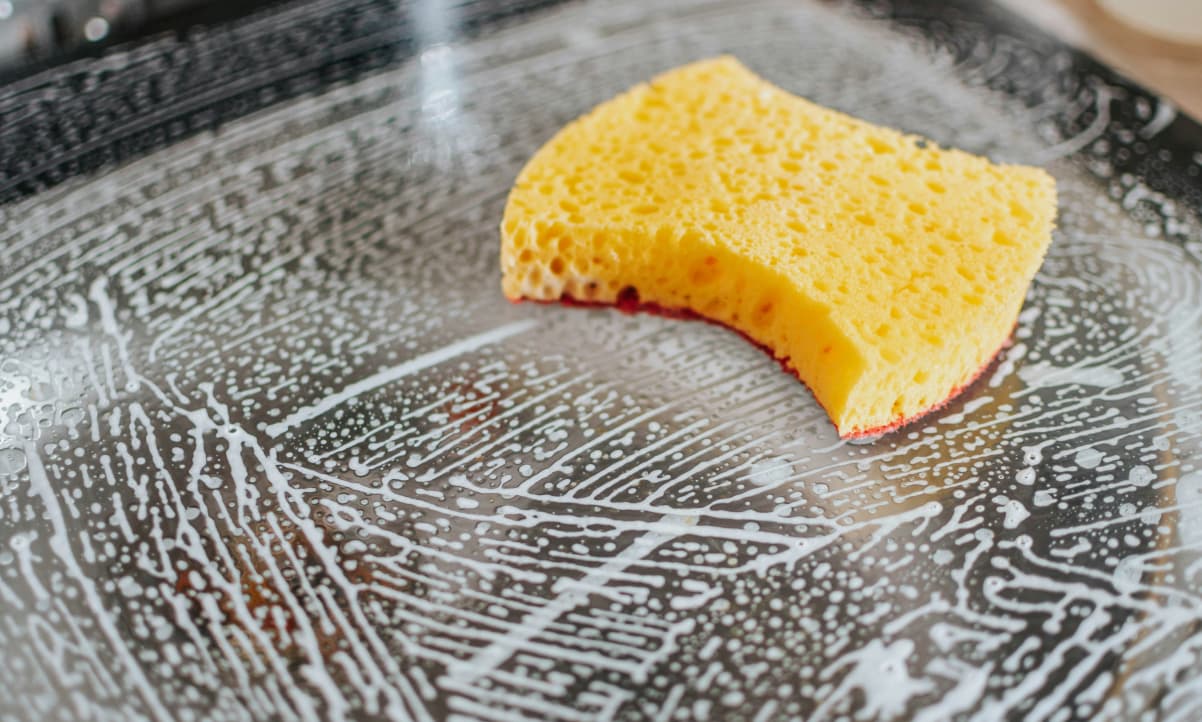
In fact, this is often the best method for cutting through thick, greasy sauces. In my years spent in the hospitality business, I learned that this method can clean just about anything.
My clumsy cook secret weapon
Washing up liquid is great for clumsy people and the generally disorganised because you don't have to stop and wash your hands after using it like you do with many kitchen cleaning products. This means you'll be less likely to be thrown off your rhythm.
In fact, it can clean just about anything. I use it to clean my whole bathroom! And you only need a little drop of it to clean a large area.
Keep a cloth and a bowl of warm, slightly soapy water to rinse it in somewhere on the counter while you cook so if you do need to clean up a quick splatter or spillage you're prepared.
A lot of the time, you can skip the soap entirely and just use some warm water and a tea towel. That way you can do a quick cleaning job then get straight back to cooking. If you feel the area needs a deeper clean, you can always go back to it later when you're not as rushed.
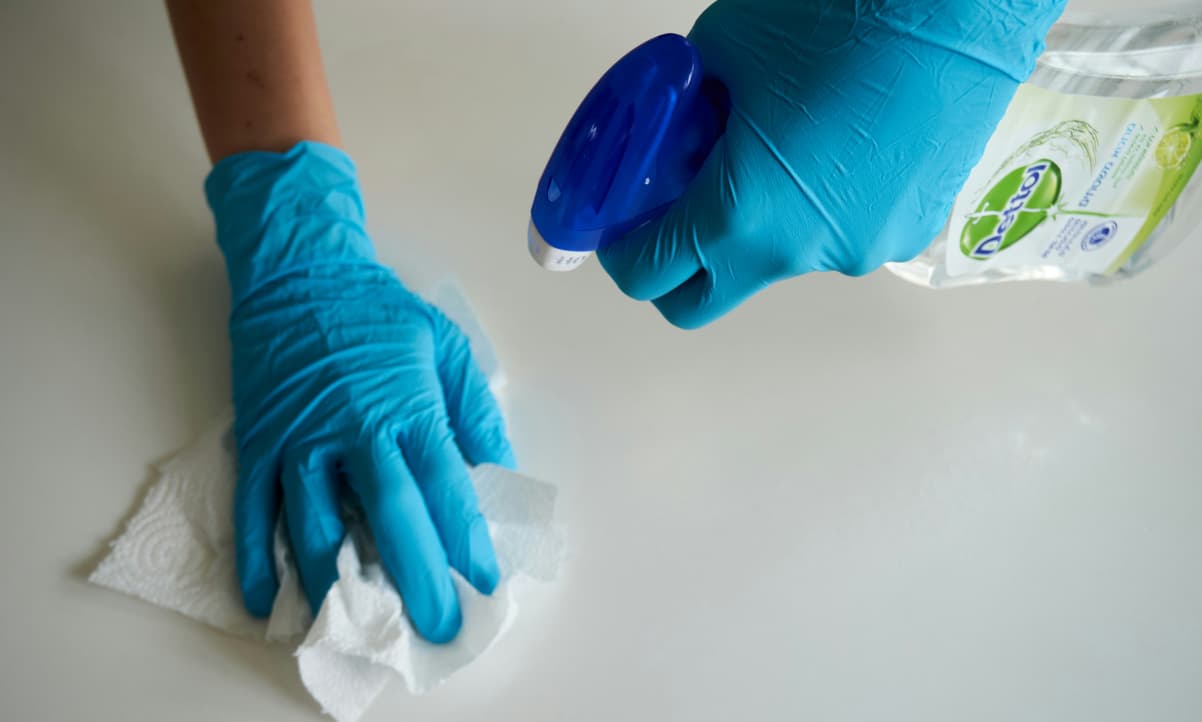
I love using tea towels to clean because they can be easily thrown in the washing machine and reused. Which means less trips to the shops for antibac wipes or blue roll!
One thing I love about not having 50 different fancy products in the kitchen is that the place is less cluttered and I don't have to rifle through the cupboards in a spillage emergency or during a deep clean.
In short, if you're a clumsy cook, less stuff means you'll be much more organised!
4. Be Kind to Yourself
Growing up clumsy and/or neurodivergent can mean you experienced negative comments about your kitchen accidents. It's time to stop internalising those!
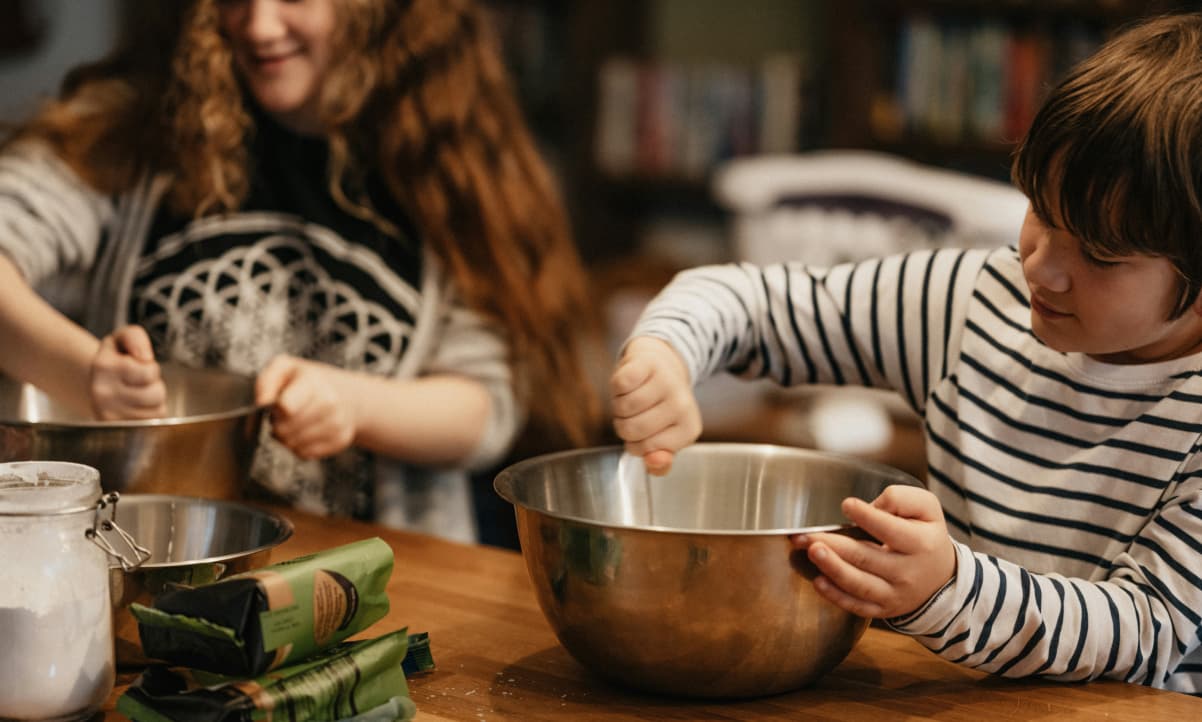
Spilling sauce on the floor or breaking a glass has nothing to do with your worth as a person, your intelligence or your ability to cook.
Next time you drop something and those self-critical thoughts start creeping in, imagine what you might say to a small child in that situation and give yourself the same grace.
If you find yourself thinking 'I'm so stupid!' or 'I can't do anything right!' when you've been clumsy in the kitchen, replace those phrases with factual descriptions of what happened. Here are some examples:
- 'I dropped the plate by accident and it broke. It's just a plate and can be easily replaced.'
- 'I spilled sauce on the counter. I'll enjoy my dinner first and clean that up after.
- 'There's rice on the floor. That's okay, accidents happen.'
Keep quick-prep backup food (instant mash, straight-to-wok noodles, canned soup, ramen, and microwaveable rice) in your cupboard in case of emergencies.
I hope these cooking tips for clumsy people were helpful :)
Anything you I missed that you think should be included? Fire me an email at evie@petruc.ci as I'm always up for improving my own kitchen confidence and continuing to update this article as a resource.
